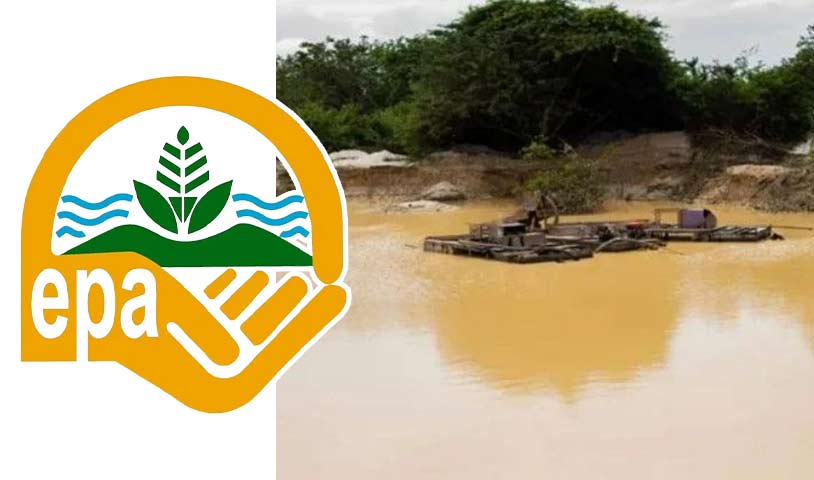The Executive Director of the Environmental Protection Agency (EPA), Prof. Nana Ama Browne Klutse, has revealed that the dangerous heavy metals contaminating Ghana’s rivers through illegal mining (galamsey) can be neutralized through scientific methods.
According to Prof. Klutse, the EPA has introduced an advanced technological solution, a copper-based “nano liquid”, that has been laboratory-tested and proven to purify highly polluted water bodies.
Speaking to Joy News on Sunday, October 5, she dismissed public hopelessness about the galamsey crisis, insisting that modern technology offers a way out if government funding is secured for a demonstration project.
“I want Ghanaians to know there is still hope because we are in a technological age,” she said, noting that the fight against galamsey should now focus on chemical innovation rather than military interventions.
Prof. Klutse explained that the EPA has identified at least two promising technologies for cleaning polluted water, one of which has already been successfully used in Greece. The agency’s preferred option, the “nano liquid,” removes toxic substances from flowing river water.
“Yes, there’s a nano liquid that is copper-based that can be used. That’s just one of the options,” she said, adding that other purification methods, such as membrane-based filtration, are also being evaluated.
She emphasized that the nano liquid solution has been tested both abroad and locally, producing convincing results. “We have done the lab tests at EPA, and it works. It’s doable,” she assured.
With over 60% of Ghana’s major rivers now severely polluted, the need for a dechemicalization strategy has become urgent.
Illegal mining has introduced hazardous levels of arsenic and mercury into water bodies, substances known to cause cancer and other genetic damage, leading to repeated shutdowns of water treatment plants.
While acknowledging that nationwide cleanup efforts would cost billions, Prof. Klutse said only $200,000 is currently needed to conduct a pilot project that will demonstrate the technology’s effectiveness.
“To do pilots and show Ghanaians, and even the President, that this is doable, we need $200,000. If I get it today, we’ll start immediately so everyone can see how the technology works,” she said.
The pilot will serve as proof of concept to win government and public confidence, paving the way for larger-scale implementation.
Prof. Klutse also noted that the EPA will select the most effective and economically viable solution after comparing the available options. “We’re assessing all possibilities to find one that is affordable and efficient, not just cheap, but cost-effective and impactful,” she explained.
By Prince Ahenkorah


